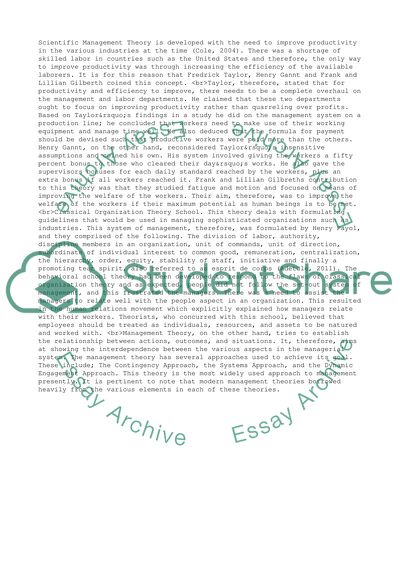Cite this document
(Evolution of Management Principles Coursework Example | Topics and Well Written Essays - 1500 words, n.d.)
Evolution of Management Principles Coursework Example | Topics and Well Written Essays - 1500 words. Retrieved from https://studentshare.org/management/1461810-discuss-the-evolution-of-management-principle-from
Evolution of Management Principles Coursework Example | Topics and Well Written Essays - 1500 words. Retrieved from https://studentshare.org/management/1461810-discuss-the-evolution-of-management-principle-from
(Evolution of Management Principles Coursework Example | Topics and Well Written Essays - 1500 Words)
Evolution of Management Principles Coursework Example | Topics and Well Written Essays - 1500 Words. https://studentshare.org/management/1461810-discuss-the-evolution-of-management-principle-from.
Evolution of Management Principles Coursework Example | Topics and Well Written Essays - 1500 Words. https://studentshare.org/management/1461810-discuss-the-evolution-of-management-principle-from.
“Evolution of Management Principles Coursework Example | Topics and Well Written Essays - 1500 Words”, n.d. https://studentshare.org/management/1461810-discuss-the-evolution-of-management-principle-from.


